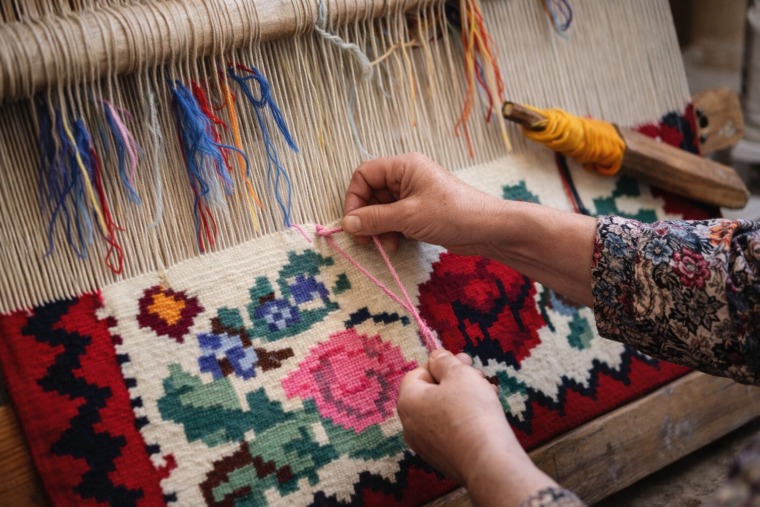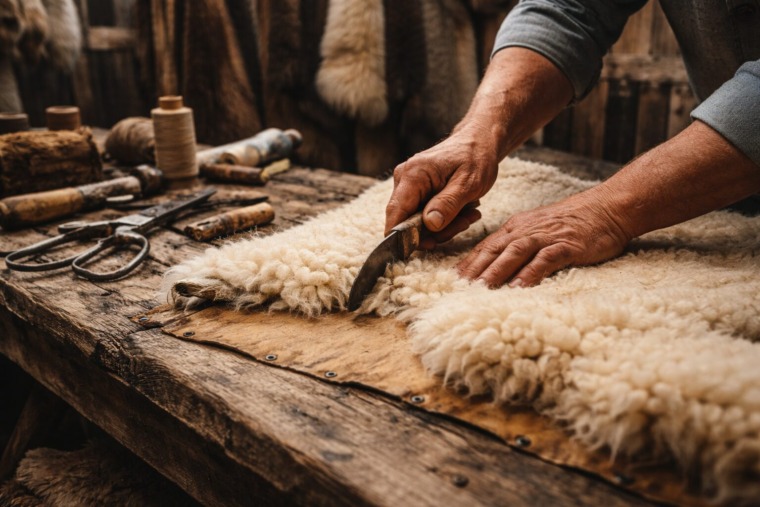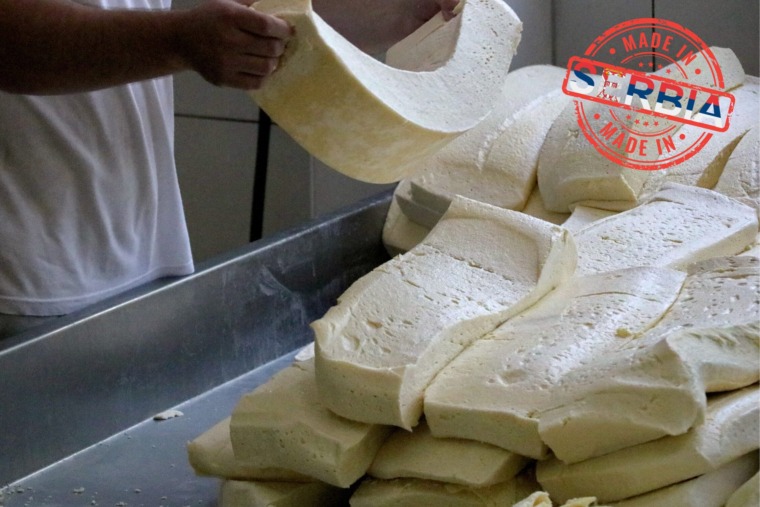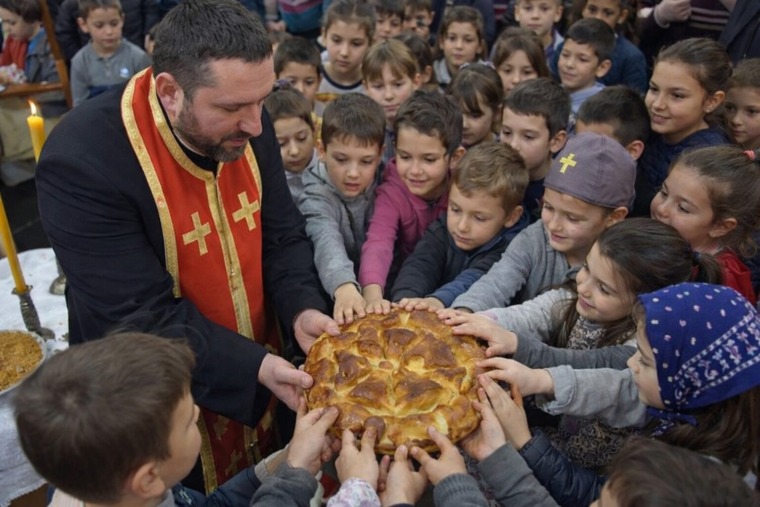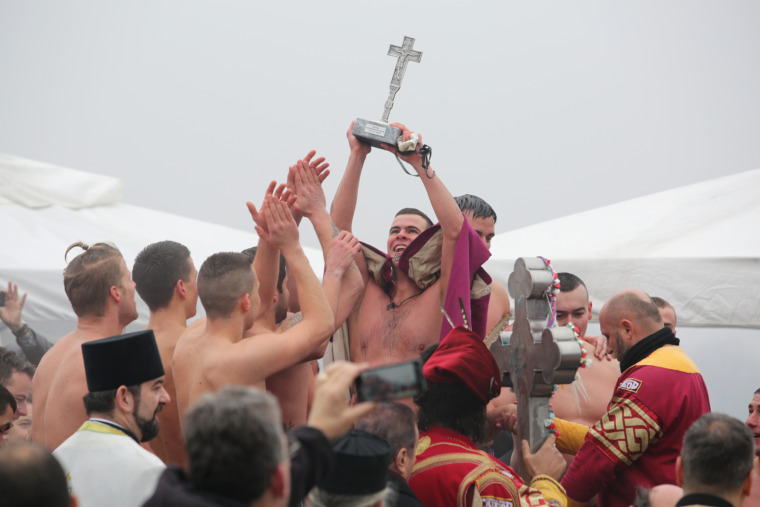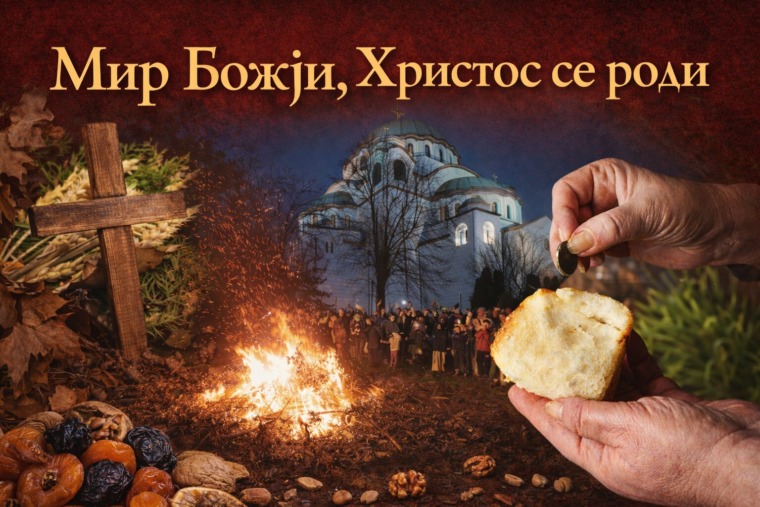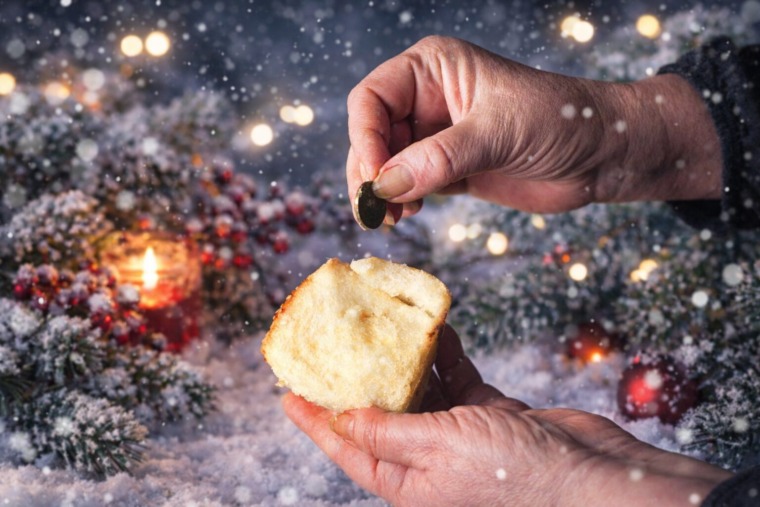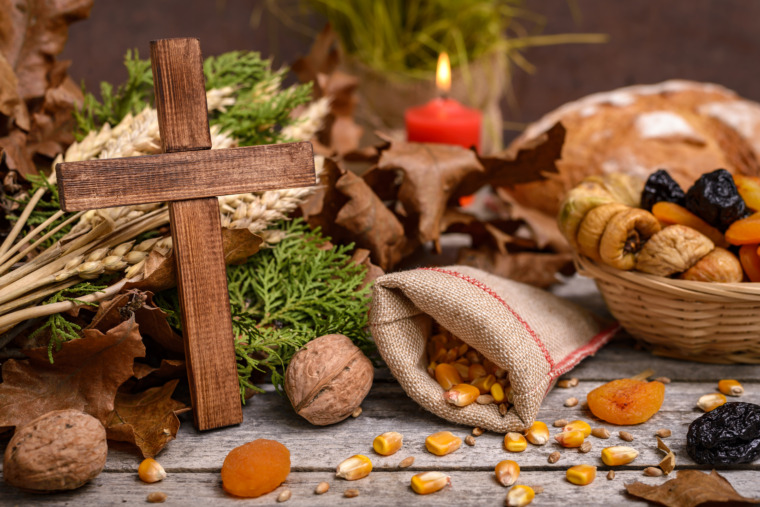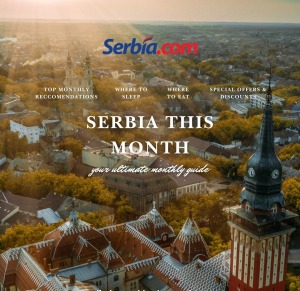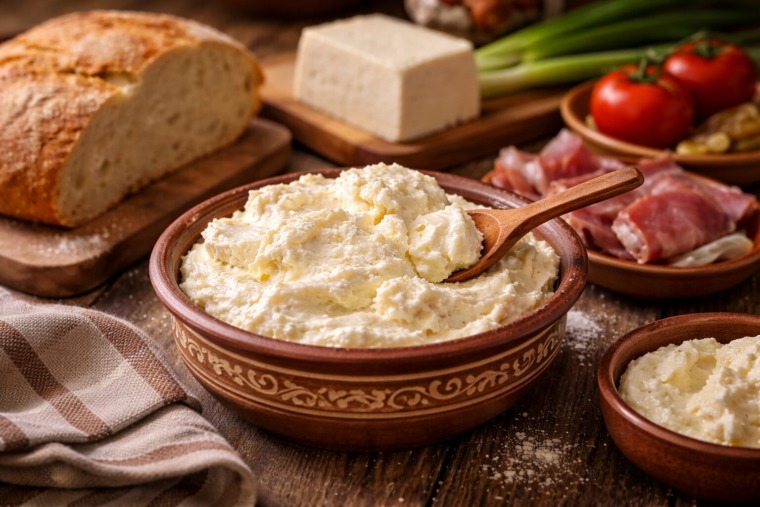
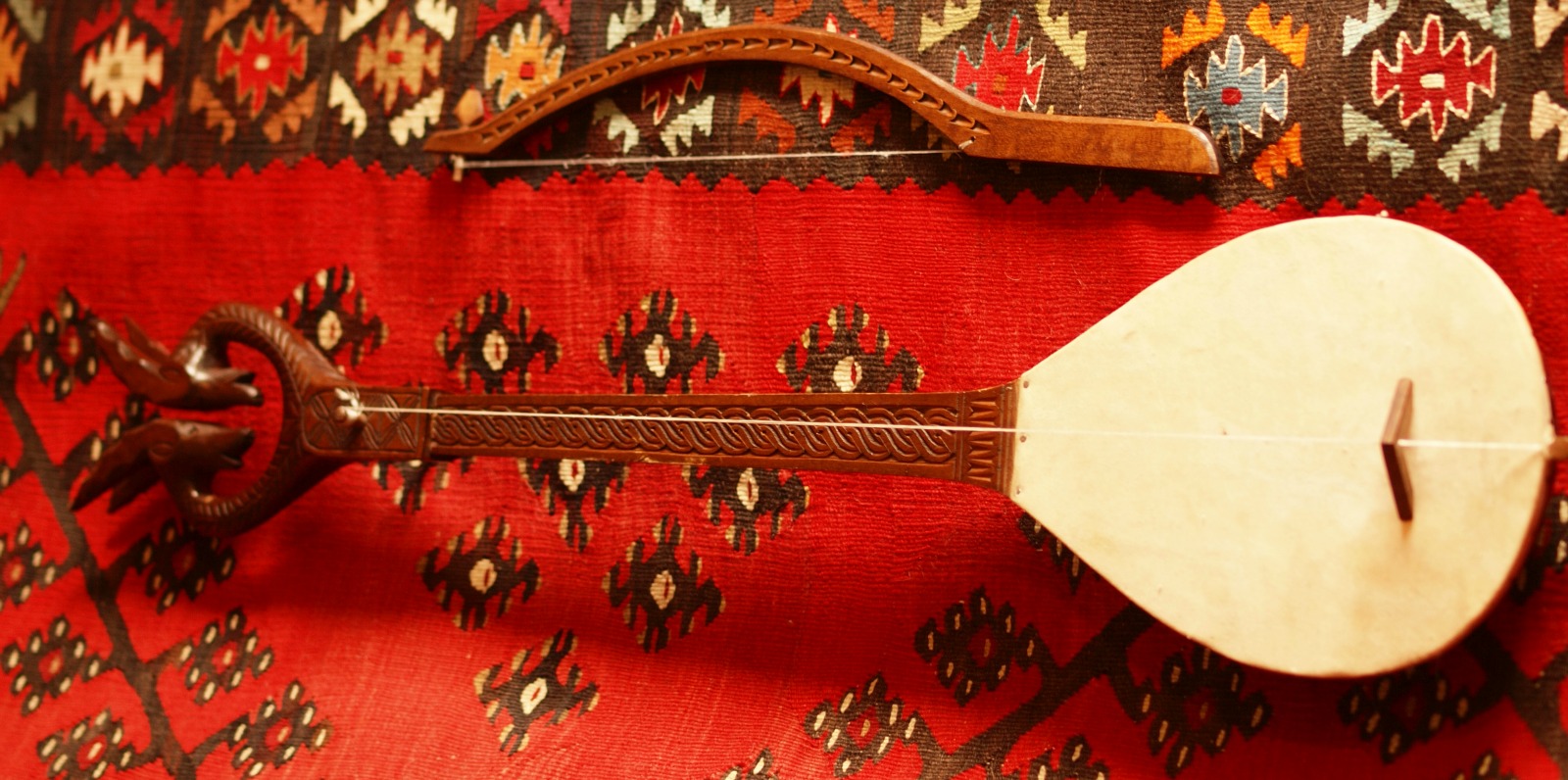
Sharp and dramatic, the sound produced by the folk instrument of long history and rich tradition, has always been an inevitable part of Serbian culture, customs and manifestations.
Gusle are as equal part of traditional music which neither time nor modern influences could manage to replace and repress.
Even in the Bible and the Odyssey, there was a word about the instrument made of only one piece of wood, usually dry and pressed maple or nut, and rarely of oak or other species, but also made of squashes. Like shepherds made their pipes, this instrument has often been made by guslars themselves, and single-wire gusle are typical for Serbia.
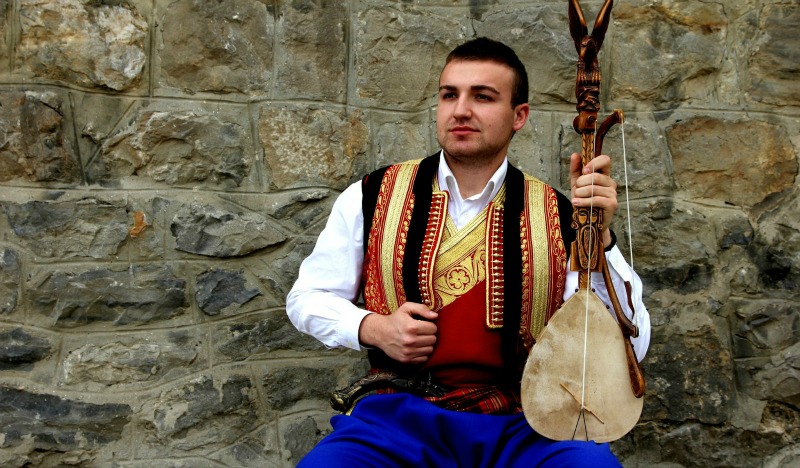
In our region, gusle were mentioned in 5th century, and it is assumed that they were transferred from Asia. About the significance of this folk instrument tells the fact that gusle were present at the court of Stefan Prvovenčani back in the 8th century, but also at the wedding of Tzar Dušan. The sound of this traditional instrument in Serbia can be mostly heard in the area of old Raška, Kosovo and Metohija, but also in the area of Western Vojvodina.
For the construction of the good gusle, according to the usual recipe, you need a branch of maple which has been growing at the sunny side. Gusle strings are made of 60 horse hairs from tail or mane, most often from the white horse, stallion if possible, and the bow is made of harder wood with strings of over 40 horse hairs.
The main area of prevalence of gusle matches with territories of so-called Dinarska cultural zone: Serbia, Montenegro, Herzegovina and Republika Srpska. Themes of the songs sung along with the gusle are various. From the story-telling about heroic feats, contests, battles and patriotism, to the nurture of patriarchal and moral values.
The most famous guslar singers were those from the time of Vuk Stefanović Karadžić. One of the most popular Serbian guslars is Filip Višnjić, old Milija, Tešan Podrugović, blind Živana, Petar Perunović Perun and others. Today are popular Boško Vujačić, Milomir Miljanić, Đorđe Koprivica and other contemporary compositors.
Gusle were an important part in history of epic poetry because guslars- folk singers- had sung out the events of the national history. By the efforts of Vuk Karadžić, many Serbian epic songs have been written and saved in the early 19th century.
There are 24 guslar societies in Serbia today, and they are organized into the Society of guslars from Serbia, which besides the Guslar Society of Republika Srpska and Guslar Society “Dušanovo Carstvo” from Montenegro makes up the Society of Serbian guslars.
 Folk guslar Milan Mrdović was the finalist of the competition of Society of Serbian guslars for 4 times, and in 2007 he won the competition and that way, managed to get this title.
Folk guslar Milan Mrdović was the finalist of the competition of Society of Serbian guslars for 4 times, and in 2007 he won the competition and that way, managed to get this title.
Milan was only 19 at the time. Besides the winning this prestigious competition, this folk guslar was also the first in Serbia, and many times was second in the competition of the Society of guslars from Serbia and of Society of Serbian guslars.
“Once a year, each society for itself organizes a festival where 40 best guslars are competing in the semi-finals. Twenty of the best guslars from the semi-finals go to the finals and the best ten guslars go to the competition of Society of Serbian guslars, which is also organized once a year”, Mrdović explained.
Along with the remaining 26 elements, singing along with the gusle was adopted into the Intangible Cultural Heritage Lists of the Republic of Serbia on the 18th June, 2012. This way, singing along with the gusle has become a part of the intangible cultural heritage of Serbs and an important element which needs to be supported in future in order to be saved and continue its transfer to other generations.
The gusle are gladly seen guests in diaspora
Gusle even today have their audience, and guslar manifestations are being organized around Serbia, Montenegro and Republika Srpska. “Our collaboration with guslar societies in diaspora is intensive. Guslars from Society of Serbian guslars who are in diaspora, are also gladly seen here”, said Milan Mrdović.
Holding the manifestations which are promoting singing along with the gusle in diaspora is important not only for meeting the people outside Serbian borders with the authentic traditional music of our region, but also because of strengthening the connections of Serbs in diaspora and their motherland. “Tradition is being nurtured by all of the people and I believe that everything that is important and of value will survive. I am sure that this skill will never fade away”, Mrdović concluded.

